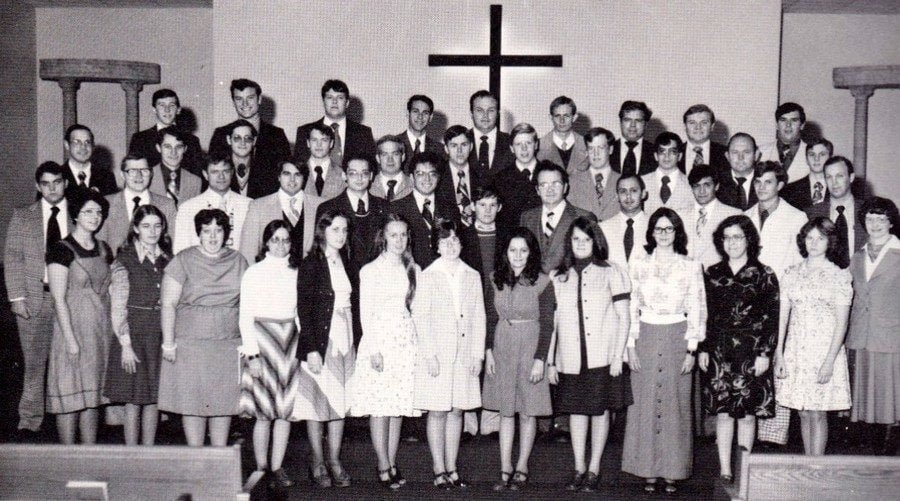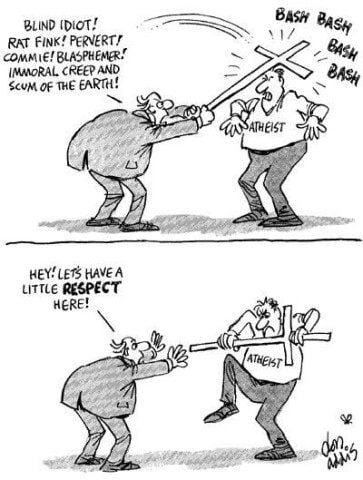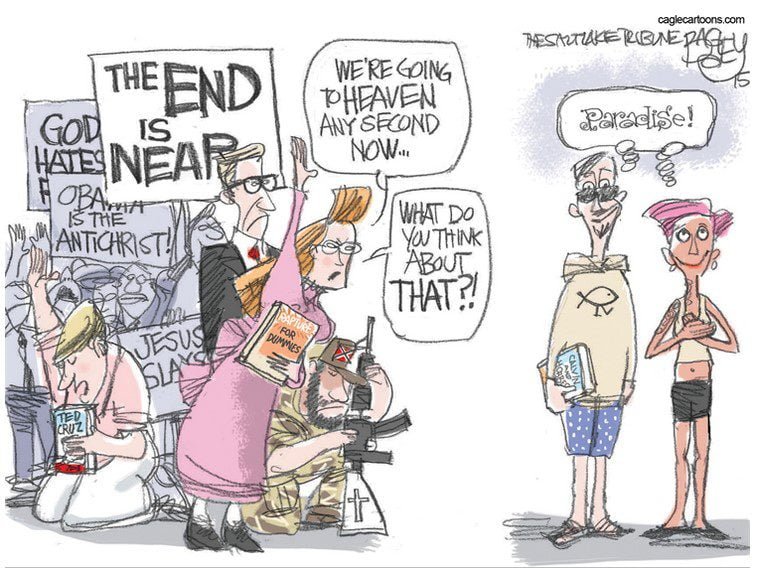
I have watched more cable news in recent weeks than I have over the past ten years. My wife can say the same. Like it or not, our lives are consumed by the Coronavirus Pandemic, COVID-19, suffering, death, and the incessant, child-like tantrums of one Donald Trump. Our feelings run the gamut from anger to despair. We have done all we can to stay home and avoid contact with outsiders, yet we fear that the virus is still hunting us, and it is only a matter of time before it finds us. And when it does — and it may have already — how will our bodies respond? Will we end up in the hospital on a ventilator, dying alone.
These are dark, difficult times. Yes, the United States and world will come out on the other side of this pandemic, but the carnage left in its wake will take years to overcome. And until there is a vaccine readily available, we could see the continued spread of the virus months or a year down the road. There’s so much we don’t know, yet we do know that social distancing works. We know that masks and gloves offer some protection against spreading the virus.
Most Americans recognize that we are facing an existential threat; that it is crucial that we all do our part by distancing ourselves from other people. We know the large gathering of people can and do become super-spreaders of the virus. Churches, in particular, have played a significant part in the spread of the virus. Thus, governors across the country have asked churches to stop holding in-person services. Most churches have put the health and safety of congregants and communities first, and have prudently closed their doors. However, a small percentage of churches refuse to stop holding services. Why do they refuse to do the right thing?
As I look at the denominational and theological connections of these rebellious churches and their pastors, something becomes very clear to me. Almost every church fits into one of two categories:
- Independent Fundamentalist Baptist (IFB) churches
- Charismatic churches
What is it about IFB churches that make them more likely to refuse government orders to cancel their services?
IFB churches typically are anti-government. In fact, they hate the government. IFB pastors believe that the government has no power, control, or authority over them. “How dare the government tell us what to do or when and wherever we can have services!” IFB preachers say. Even those who have canceled their services are likely sitting at home seething over what they perceive is governmental control and overreach.
I have written about four IFB churches that refused to close their doors: First Baptist Church, Bryan Ohio (Local Church Continues to Meet on Sundays Despite the Coronavirus Pandemic), North Platte Baptist Church, North Platte, Nebraska (Dear Pastor Reeves, Let Me Explain to You Loving Your Neighbor as Yourself), Newark Baptist Temple, Heath, Ohio (IFB Pastor Mark Falls Tries to Use Bible Verses to Guilt People into Attending Church during Coronavirus Pandemic, and Maryville Baptist Church in Louisville, Kentucky (IFB Pastor Jack Roberts Refuses to Close the Doors of his Church). First Baptist finally saw the light. but the Baptist Temple, North Platte Baptist, and Maryville Baptist continue to hold services.
Easter Sunday, the Newark Baptist Temple gathered together to worship their God. You can watch a video of the service below. What you will quickly see is that no one is wearing masks or gloves, many people are ignoring the six-foot social distancing guideline, and congregants seem generally clueless of the fact that their singing, talking, and even breathing can and does expel the virus into the air.
What is it about Charismatic churches that make them more likely to refuse government orders to cancel their services?
While Charismatic churches can and do have anti-government sentiments, their refusal of governmental orders to cancel their services are more theological in nature. Charismatic preachers such as Tony Spell, Rodney Howard-Browne, and others, believe that their God is bigger than the Coronavirus; and that God will protect them from the virus; or God will heal them if they are infected.
Spell bussed people into his Easter service, effectively telling the State of Florida to go fuck themselves. Howard-Browne’s church found their insurance canceled, so they were unable to physically meet. Evidently, God is not better than property and liability insurance companies.
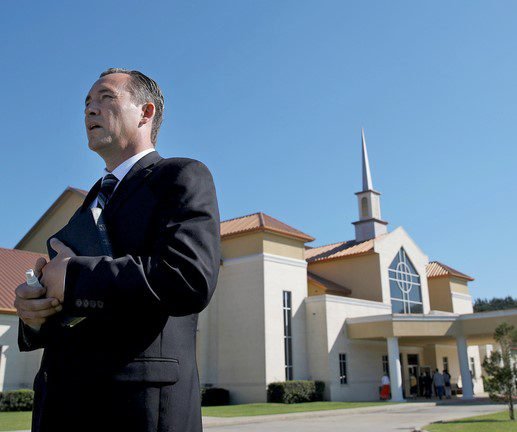
Spell, pastor of Life Tabernacle Church: The Apostolics of Baton Rouge in Louisiana had this to say about holding in-person church services:
Satan and a virus will not stop us God will shield us from all harm and sickness. We are not afraid.
Like any zealot or like any pure religious person, death looks to them like a welcome friend. True Christians do not mind dying. They fear living in fear.
I cannot baptize people in a livestream. I can not lay hands on people in a livestream. I cannot pray for people in a livestream, and this is our biblical command — to lay hands on the sick and when they recover baptize them by immersion in water, which we do every day.
Spell reveals his theological motivation for holding in-person services: prayer, the laying on of hands, and the healing of the sick. Spell’s Biblical basis for doing so is this:
- They shall take up serpents; and if they drink any deadly thing, it shall not hurt them; they shall lay hands on the sick, and they shall recover. (Mark 16:18)
- Is any sick among you? let him call for the elders of the church; and let them pray over him, anointing him with oil in the name of the Lord. (James 5:14)
According to Life Tabernacle Church’s website, divine healing is part of their apostolic DNA. Here’s what their doctrinal statement has to say:
God has made Himself known through the ages by miraculous healings and has made special provisions in the age of grace to heal all who will come to Him in faith and obedience. Divine healing was purchased for us by the blood of Jesus Christ, especially by His stripes (Isaiah 53:5; Matthew 8:16-17; I Peter 2:24). Jesus went everywhere healing those who were sick (Matthew 4:23-24), and He commanded His disciples to do the same (Matthew 10:8). He said concerning those who believe the gospel, “They shall lay hands on the sick, and they shall recover” (Mark 16:18). Mighty healings and miracles followed the disciples wherever the gospel was preached.
There is no sickness or disease too hard for God. Any of us, our children, or our friends can be healed by the power of God. “Is any sick among you? let him call for the elders of the church; and let them pray over him, anointing him with oil in the name of the Lord. And the prayer of faith shall raise him up: and if he have committed sins, they shall be forgiven him. Confess your faults one to another, and pray one for another, that ye may be healed. The effectual fervent prayer of a righteous man availeth much.” (James 5:14-16).
“There’s no sickness to hard for God,” Tony Spell believes, and that includes Coronavirus and COVID-19. In Spell’s alternate reality? It’s God, not science that heals sickness and disease. Of course, the true test of such ignorance comes when Spell, a family member, or congregant gets sick and religious mumbo jumbo recited over them doesn’t work. What do they do? Run to the doctor/ emergency room/hospital for treatment. What happened to God being the mighty healer and deliverer? What happened to no sickness being too hard for God?
The refusal of IFB pastors and Charismatic pastors to morally do what’s right is belief-driven, and even if their haughty ignorance leads to people being infected with the virus, they will find ways to spin their rebellion against authority as some principled stand for God and country. What most people will see, however, is pigheaded preachers who have no regard for their churches or communities; preachers who put beliefs and positions over public health and safety.
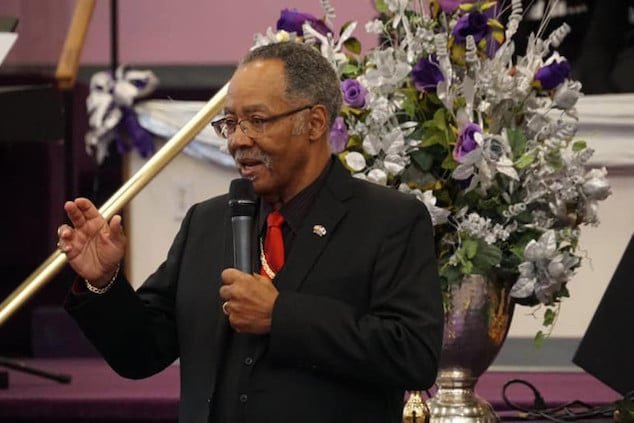
Let me conclude this post with the stories of Gerald O. Glenn, pastor of New Deliverance Evangelistic Church in Richmond, Virginia, and itinerant preacher and musician Landon Spradlin. Both were Evangelicals.
Glenn had this to say in a March 22 sermon:
I firmly believe that God is larger than this dreaded virus. You can quote me on that, you can quote me on that. I am essential, I’m a preacher — I talk to God!
Glenn believed that he was “essential” and that God was larger than the Coronavirus. Sadly, Glenn learned that he was not essential and God was NOT bigger than COVID-19. Glenn died a week after being diagnosed with COVID-19.

Landon Spradlin said the Coronavirus was not big deal; that it was overhyped by the media. Spradlin found out the hard way that COVID-19 is a big deal, and no, the media was not overhyping the pandemic. Spradlin went about preaching and singing, giving no regard to social distancing and avoiding groups of people. Spradlin said the virus would “come and go,” but what came and went was Spradlin. Twelve days after preaching at Mardi Gras and saying the virus would come and go, Spradlin died from COVID-19.
Sadly, the only way for recalcitrant IFB and charismatic preachers to see the danger of COVID-19 is infection and death, if not of them personally, then of someone dear to them. As long as these pastors can avoid the consequences of their sins, they will continue to act in ways and promote ideas that harm not only to church members but communities at large. Sadly, it’s going to take a few preachers getting infected and dying before the so-called men of God mentioned in the post and others see the light.
Bruce Gerencser, 68, lives in rural Northwest Ohio with his wife of 47 years. He and his wife have six grown children and sixteen grandchildren. Bruce pastored Evangelical churches for twenty-five years in Ohio, Texas, and Michigan. Bruce left the ministry in 2005, and in 2008 he left Christianity. Bruce is now a humanist and an atheist.
Your comments are welcome and appreciated. All first-time comments are moderated. Please read the commenting rules before commenting.
You can email Bruce via the Contact Form.


